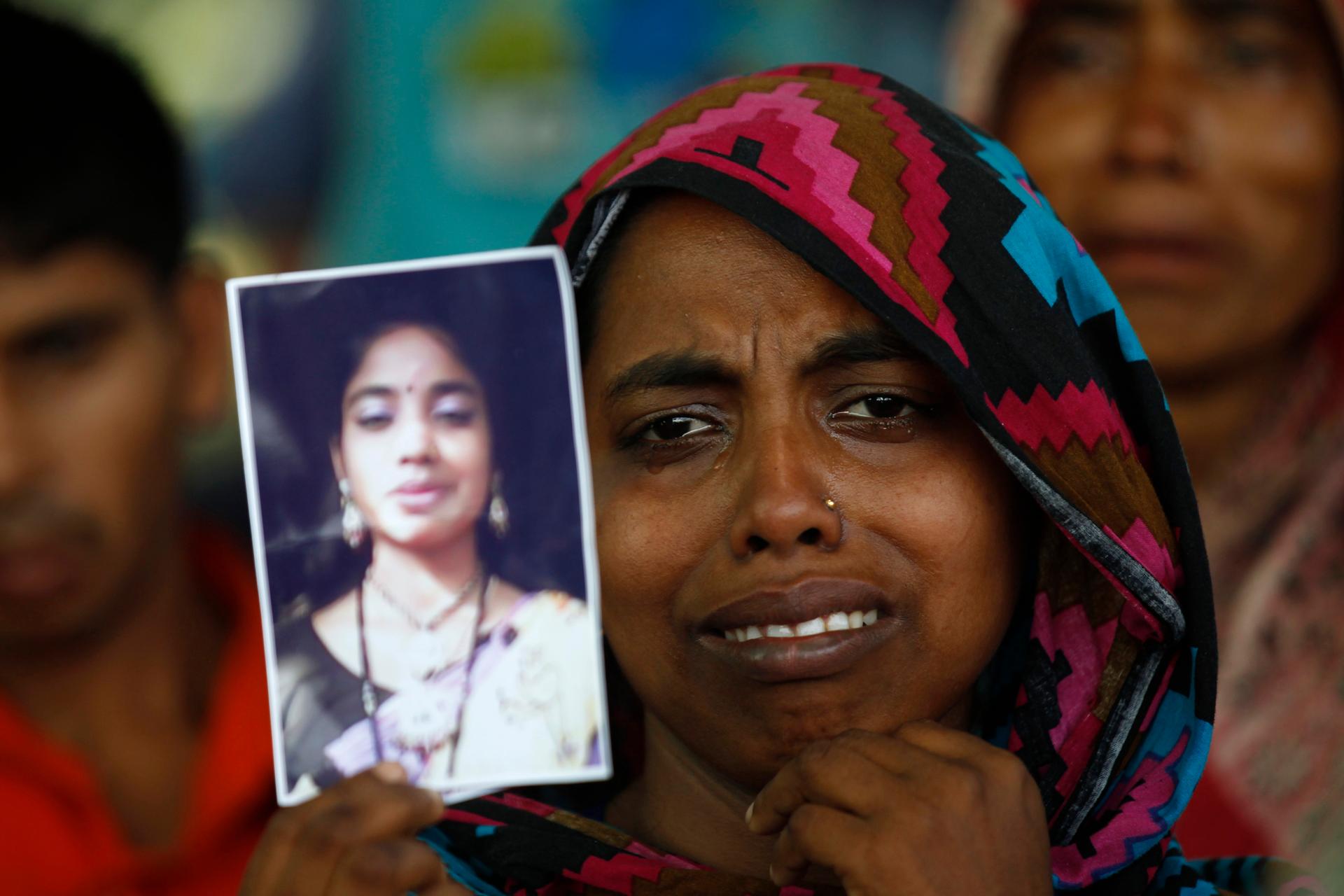In Bangladesh, will a legal system ‘full of holes’ prosecute those responsible for the Rana Plaza factory collapse?
A woman holds a picture of her relative, a garment worker who went missing in the Rana Plaza collapse on the first year anniversary of the accident.
Children hoisting tattered photographs of their parents walked among demonstrators honoring those killed one year ago Thursday in the deadly factory collapse at Rana Plaza in Bangladesh.
"There are hundreds of kids who have lost either one parent or sometimes both," says Zafar Sobhan, the editor of the Dhaka Tribune. "Nothing can bring back a parent, nothing can bring back a husband or a wife, but there is a lot which could have been done for these families — and not a lot has been done."
Some four million Bangladehis work in the garment industry. Clothing manufacturing is driving the Asian nation's growth, but the workers who power that growth have little bargaining power. Sobhan says the survivors of Rana Plaza have only received a small portion of the aid that was promised to them after the tragedy. And although the minimum wage for garment factory workers has increased from $39 per month to $69 per month during the past year, "this is still quite a distance from what is a living wage," Sobhan says.
Many of those demonstrating on the streets of Dhaka were workers calling for the death penalty for Rana Plaza owner Sohel Rana, who is currently in prison awaiting trial, along with the owners of several of the factories housed in the building complex.
"This is huge because the truth of the matter is our legal system in Bangladesh is filled with holes … and no one has ever gone to jail for these kinds of incidents," Sobhan says. "And so we're very hopeful that this will be a watershed moment and it will send a message to all of the other people that you can no longer operate with this kind of impunity."
The day before Rana Plaza collapsed, inspectors found cracks in the buildings. Some garment workers had to be coerced into entering the factories.
"This really wasn't a question of benign neglect. It was far more pernicious, far more malign than that," Sobhan adds.
But Sobhan notes that Bangladeshi entrepreuners are "constantly being squeezed" by pressure from competitors in Cambodia or Africa. He says a big part of the problem is that "race to the bottom, the screws which are being twisted," that encourage factory owners to cut corners and produce garments at the lowest price.
He says those who work in Bangladeshi garment factories hope ultimately consumers in Western countries will be willing to pay more for clothing made under safer conditions.
"As much as we are putting pressure here in Bangladeish, by the same token we really need to put an equal amount of pressure on the retailers," Sobhan argues.
Our coverage reaches millions each week, but only a small fraction of listeners contribute to sustain our program. We still need 224 more people to donate $100 or $10/monthly to unlock our $67,000 match. Will you help us get there today?
